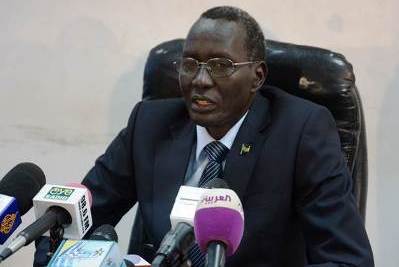S. Sudan seeking aid to close budget deficit
February 9, 2017 (JUBA) – South Sudan is seeking financial support the from donor communities to help close a $ 200 million budget deficit.

“I need support from the donors to come and provide even technical support to the ministry of finance for us to undertake the reform agenda like the establishment of the National Revenue Authority to support the Bank of South Sudan,” said the minister.
He was speaking meeting Germany ambassador who pledged support on behalf of the donor community in the country.
“I have also requested them to support us in the budget deficit. Prices have increased and the cost of living is now unaffordable for majority of the people in the country”.
Speaking on behalf of the donor community, the German envoy to South Sudan, Johannes Lehne said donor countries would continue to support the government to implement the reform agenda stated in chapter 4 of the 2015 peace agreement.
He emphasized the importance of transparency to the donor community Germany provides $1bn every year for humanitarian aid.
“Transparent in the spending is very important for us as we provide support of over one billion dollars to South Sudan every year especially in the humanitarian field, but also development aid and construction as most areas of the country have been destroyed by war,” said Lehn.
Since its independence, South Sudan has relied on oil for all income—a situation that has significantly compounded ongoing political and economic instability due to the fall in crude oil prices.
According to South Sudanese officials, production in the past reached as high as 350,000 bpd but fell after a dispute with Sudan over fees for pumping South Sudan’s crude through Sudan’s export pipeline, which led Juba to halt production in 2012.
South Sudan got the lion’s share of the oil when it split from Sudan in 2011, but it’s only export route is through Sudan, giving Khartoum leverage and leading to ongoing pricing disputes.
(ST)
